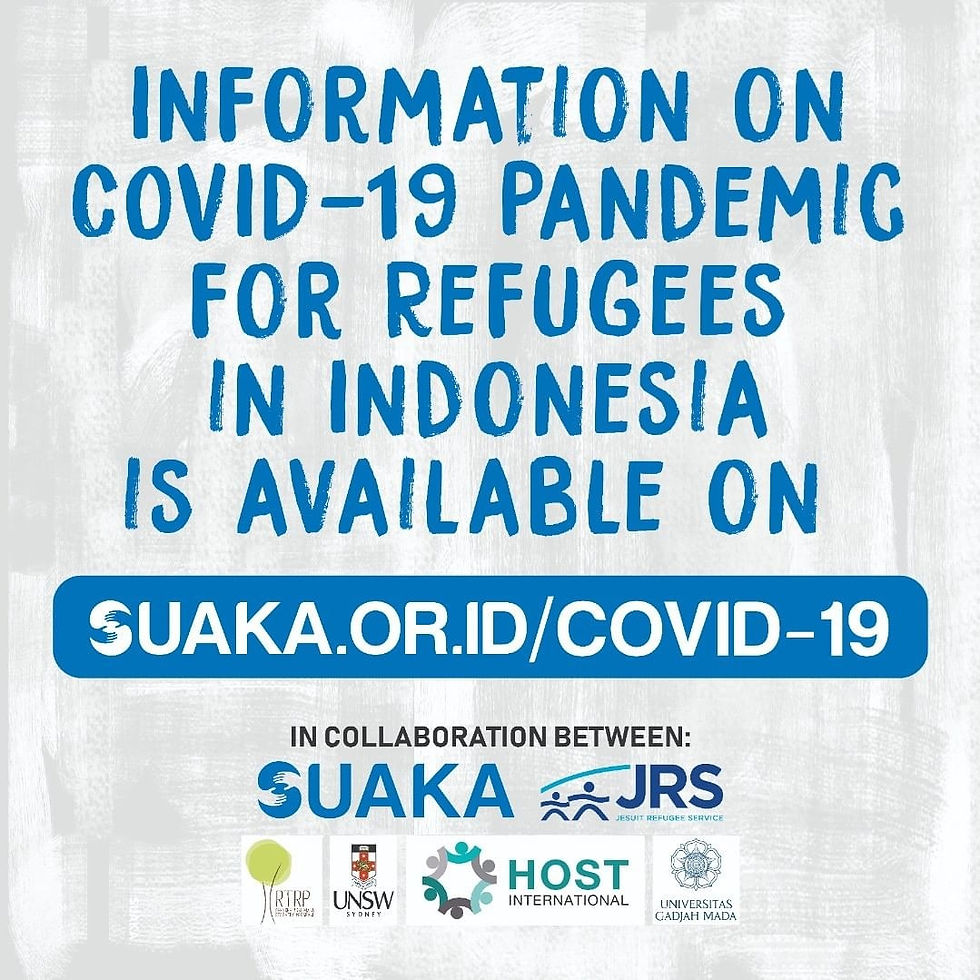(More) Love in the Time of Corona
- inclines4rid
- Apr 15, 2020
- 4 min read
Updated: Apr 16, 2020

"Humanity's biggest threat has always been itself," was a line said by Engerraund Serac of Westworld that made my lips formed an ironic smile that afternoon. The sentence that I felt resonated with some situations caused by the microscopic thing we call the coronavirus.
As of 14 April 2020, based on the Coronavirus COVID-19 Global Cases map by the Center for Systems Science and Engineering (CSSE) at Johns Hopkins, the virus has killed more than 114,000 people worldwide, including 399 people in Indonesia. Like other outbreaks that have hit humans before, COVID-19 triggers fear and panic, among other things. It's not uncommon that some people will do things that reflect egocentricity like panic buying or hoard things and then resell it way above the average price for some extra income.
(Please bear in mind that when I say "extra," I refer to those who have other sources of income but are taking the advantages of the situation, not because they lost their jobs, and it's the only thing they can do to survive.)
In a way, the kind of action is understandable. We shouldn't be lenient about it, we shouldn't ignore it, but it's understandable because it's part of our survival mode. When we crave for certainties, when we're afraid that this outbreak will be the next 1918 Spanish Flu – we're worried that resources will become limited; we would feel the urge to compete for those resources, to ensure we have everything we need to survive. It can make some people forgot that the word "we" is not just representing them or those they perceive as their people, but all humans as well.
When Serac mentioned humanity, he referred to the human race and what we're capable of. The word humanity derives from the Latin word humanitas, which means "human nature, kindness."; a word for the qualities that make us human, such as the ability to love and have compassion, be creative, and not be a robot or alien. But it's not a secret that humans are capable of doing bad things as well.
We can be greedy, selfish, oppress others, ignore those who need help the most, and oh yes, we definitely can kill others. Those bad things are equally frightening to what the virus can do to us. Those are the things we should avoid, prevent, and fight against. Those things are also diseases that threaten us.
I know I'm not the first one who thinks that the calamity of COVID-19 should make us see that we're in this together, to work together and see everyone as a human being, just like ourselves. But I still want to amplify this message:
in times like these, we need more love and compassion instead of prioritizing who to help first based on the tribalistic labels.
Refugees often become the most vulnerable ones when it comes to getting support and protection. Some people still label them as "the others," even "competitors" or "rivals" that can "steal" their opportunities to get some jobs, food, or other factors they need to live well. When a dreadful thing like an outbreak happens, they become more vulnerable than they already are.
I remember when I told some people about this website, a friend asked me why I decided to create a project that aims to support refugees when millions of Indonesians are still living under the poverty line. Why didn't I help Indonesians first? I told him,
"that kind of question was the reason why I created this project. Because I hope, someday, people want to help those in need, not because of some tribalism. Indonesians and refugees are human beings. This is not The Hunger Games or Battle Royale. They shouldn't fight to the death to get some compassion from other people that can help them. I do this because I want to help other humans, Indonesian or not, when I can. FYI, a few years ago, I was involved in a poverty alleviation project, and all beneficiaries were Indonesians, so I kind of did my part in that area."
I won't tell you about the rest of the conversation I had with that friend. But what I learned from our discussion was that tribalism plays a role in making people decide who to help. Sometimes, they're unaware of the latent danger of it, how it can form an exclusivity, and hone subtle discrimination to some group.
In times like these, all of us should focus on science and kindness. If you can't contribute to the former, then go for the latter. Social distancing, prevent yourself from panic buying, make or share funny memes, make some donations are some of the things fueled by the kindness. If you can't help others, then don't hurt them.
For refugees or friends of refugees in Indonesia, if you happen to see this post, you can go to suaka.or.id/covid-19 to get information about the pandemic like health protocol, mental health, terminology, and other useful information.

Most materials are in English. If you want to help to translate the content for the refugee communities, that would be great! You can send an email to zico@suaka.or.id.
By translating all information to various languages that the refugees in Indonesia are using, you are helping them to ensure the rights of access to information, an integral part of the right to freedom of expression of human rights.
Let us know what kind of information you need that not yet covered on the website. If you have any suggestions, critics, or information to share, please feel free to contact us, or you can write down in the comment below. Stay safe and be kind!




Comments